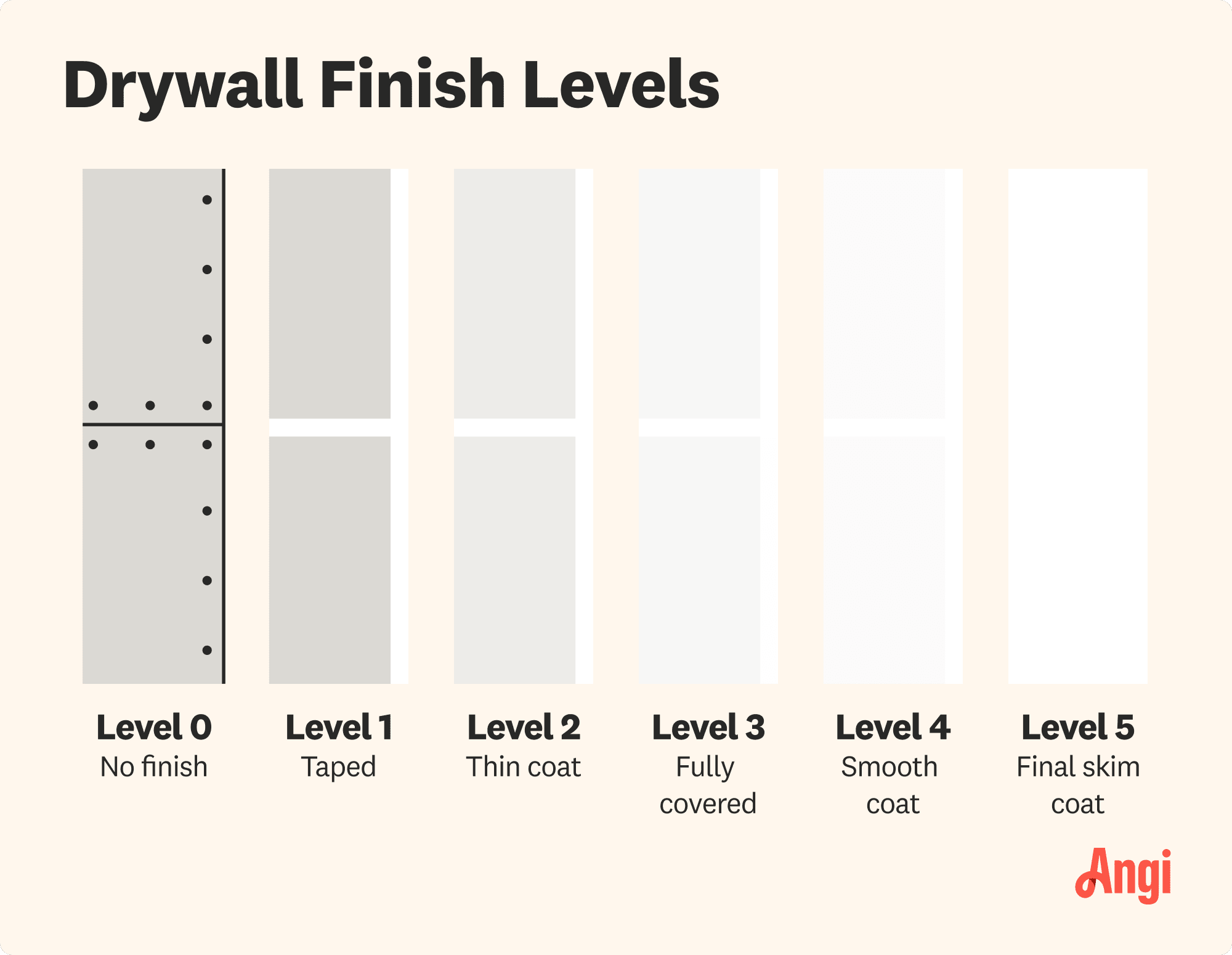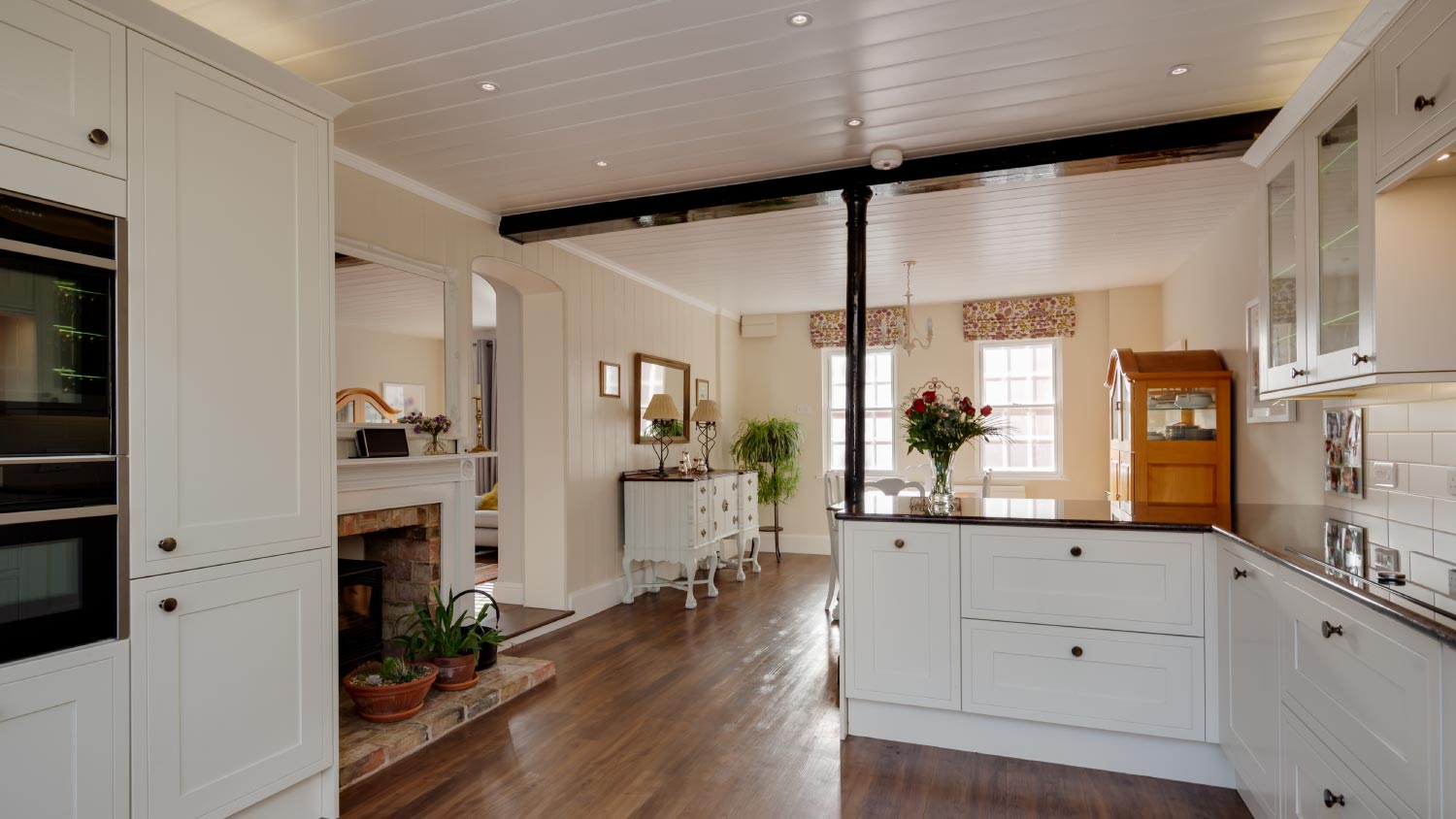
Whether you’re trying to keep noise in or out, soundproofing materials are the way to go. Use this guide to see how much it costs to soundproof a room.
Drywall service costs depend on your project and location. Check with a local pro for your specific job.
In Boston, homeowners pay between $2.10 and $2.20 per square foot for drywall installation, including materials and labor.
Tight layouts in historic Boston homes can make access tricky, increasing labor time and expense.
Permit fees for major home construction projects range from $50 to $250, depending on project scope and whether inspections are required.
As a higher-cost-of-living city, Boston residents can expect drywall installation prices to run slightly above the national average. Drywall installation here costs about $2,186 on average, with a typical range of $1,140 to $3,233. Factors like the size of the space, drywall type, and level of finish have the biggest impact on the final price. Since Boston homes often feature older construction and tighter layouts, installation may require extra prep work or specialized materials, which can increase your costs.
When installing drywall in Boston, MA, several factors can affect the cost, including your room’s size, type of drywall, and the drywall’s thickness. Hire a Boston drywall installer to ensure your home project is completed effectively and efficiently.
Whether you’re working on a small bathroom or a spacious living room, having an estimate of costs based on room size can help you plan your budget more effectively. Installing drywall in a small bathroom of around 100 square feet will cost $450 to $700, while for a large living room, it can range from $1,600 to $3,200.
Here’s a chart that gives the average costs for installing drywall—including materials and labor—in different common room sizes:
| Room Size in Square Feet | Average Cost |
|---|---|
| 100 (Small Bathroom) | $450–$700 |
| 200 (Small Bedroom) | $600–$1,100 |
| 300 (Large Bedroom) | $950–$1,700 |
| 400 (Small Living Room) | $1,200–$2,400 |
| 500 (Large Living Room) | $1,500–$3,000 |
| 600 (Large Space) | $1,800–$3,400 |
Standard drywall is the most affordable option, but more expensive types may be worth the additional investment in some scenarios.
| Drywall Type | Best Use | Average Cost of Materials per Square Foot |
|---|---|---|
| Moisture-resistant | Bathrooms, kitchens | $0.65–$0.85 |
| Mold-resistant | Extra-moist areas | $0.75–$0.90 |
| Fire-resistant | Garages, boiler rooms, commercial | $0.70–$1.10 |
| Soundproof | Music rooms, kids’ rooms, primary bedrooms | $2.10–$3.40 |
| Eco-friendly | All rooms | $0.85–$1.10 |
Drywall thickness can sway your total price. If you’re on a minimal budget, you might want to opt for the thinnest quarter-inch panels. Three-eighths-inch and half-inch are the most common varieties. Soundproof and fire-resistant panels are usually five-eighths-inch thick. Drywall is sometimes available in ¾-inch thicknesses for added soundproofing.
| Drywall Thickness in Inch | Ideal Use Case | Average Cost per Panel |
|---|---|---|
| 1/4 | Curved areas or patches | $17 |
| 3/8 | Patches or repairs | $18 |
| 1/2 | Standard walls | $22 |
| 5/8 | Standard ceilings, fire-proofing | $23.50 |
| 3/4 | Sound-proofing, fire-proofing | $26 |

Your drywall installation costs will vary depending on what level of drywall finish you agree upon with your contractor.
| Level | Description | Average Cost per Square Foot |
|---|---|---|
| 0 | Contractor hangs the drywall and no more | $0.90–$1.15 |
| 1 | Drywall has the seams sealed with tape and then covered with mud | $1.10–$2.20 |
| 2 | Has one coat of joint compound, typically to allow tiling on top | $1.40–$2.75 |
| 3 | Has two coats of joint compound for a smoother finish | $1.70–$3.25 |
| 4 | If you plan to use matte paint, pros recommend the application of three coats of joint compound | $1.90–$3.40 |
| 5 | A very high-quality finish which is the best option for enamel and gloss paint application. This includes three coats of joint compound and a full skim coat for a super-smooth appearance | $2.25–$3.85 |
Several factors affect the cost to hire a drywall installer. For instance, in addition to labor, you may also need to account for permit fees, depending on your project’s scope.
In Boston, homeowners pay between $2.10 and $2.20 per square foot for drywall installation, including both materials and labor. But complex layouts, high ceilings, and multi-room installations can raise costs closer to $3.00 per square foot. Labor costs tend to run on the higher end, which reflects the city’s union labor rates and high cost of living.
Drywall installation itself rarely requires a permit in Boston, but if it’s part of a large project that includes new framing, insulation, or electrical work, you may need one through the City of Boston Inspectional Services Department. Permit fees range from $50 to $250, depending on project scope and whether inspections are required.
Licensing and insurance can slightly raise project costs in Boston, but they also protect homeowners from financial risk. Drywall installers need to be registered as Home Improvement Contractors, and they must pay a fee to maintain the registration. Reputable pros also carry liability and workers’ compensation coverage. These credentials also ensure you aren’t on the hook for things like property damage or onsite injuries.
Massachusetts imposes a 6.25% sales tax on drywall materials, but labor costs for residential installation are generally untaxed. Most contractors include this tax within their material estimates, just make sure they’re not also taxing labor; only the materials should be taxed.
Installing new drywall can modestly boost a home’s value in Boston, especially in older properties where walls often show signs of age, water damage, or have outdated finishes. Fresh drywall creates a clean, modern surface that makes interiors look newer and more move-in ready, which is a strong selling point in Boston’s competitive real estate market.
Home is the most important place on earth, which is why Angi has helped more than 150 million homeowners transform their houses into homes they adore. To help homeowners with their next project, Angi provides readers with the most accurate cost data and upholds strict editorial standards. We survey real Angi customers about their project costs to develop the pricing data you see, so you can make the best decisions for you and your home. We pair this data with research from reputable sources, including the U.S. Bureau of Labor Statistics, academic journals, market studies, and interviews with industry experts—all to ensure our prices reflect real-world projects.
Want to help us improve our cost data? Send us a recent project quote to [email protected]. Quotes and personal information will not be shared publicly.
From average costs to expert advice, get all the answers you need to get your job done.

Whether you’re trying to keep noise in or out, soundproofing materials are the way to go. Use this guide to see how much it costs to soundproof a room.

Installing beadboard ceilings is a great DIY project. Learn what to expect cost-wise from this project, whether removing or covering a popcorn ceiling.

Pre-drywall inspection costs vary depending on the home size, build complexity, and reporting you receive. Estimate your budget with this cost guide.

Still debating drop ceiling versus drywall? Keep reading to learn how these two ceiling types differ and which option is right for your home.

Hanging drywall is only the beginning of creating smooth walls. We’ll show you the steps required for how to tape and mud drywall as the key finishing touch.

Skim coating helps smooth out drywall before you apply paint. Learn how to skim coat a wall in eight steps with this guide.